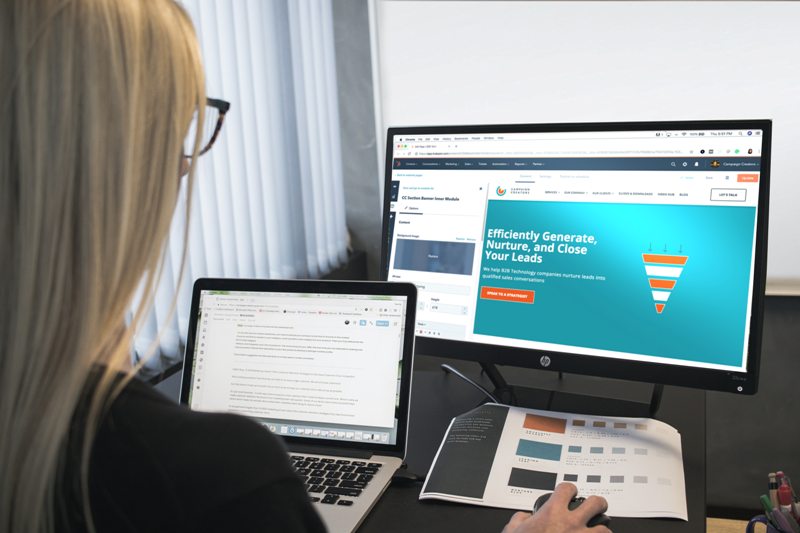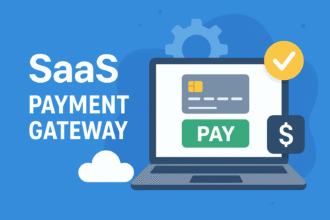How to Improve the Security of the Website
- 1 Tips On How To Improve the Security of the Website
- 1.1 Block website source code
- 1.2 Filter user input
- 1.3 Use parameterized queries
- 1.4 Use URL pseudo-static
- 1.5 Use verification code
- 1.6 System log
- 1.7 Filter the user’s IP
- 1.8 Use SSL security products
- 2 Conclusion
- 2.1 FAQs:
- 2.1.1 Why is it important to choose a well-known open-source program for website development?
- 2.1.2 What are some common security measures to implement on a website?
- 2.1.3 How can input filtering improve website security?
- 2.1.4 What is the purpose of using parameterized queries?
- 2.1.5 How does URL pseudo-static improve website security?
- 2.1.6 What is the purpose of implementing a verification code system?
- 2.1.7 Why is SSL encryption recommended for websites handling personal information?
In short:
- Choose well-known and regularly maintained open-source programs for website development to minimize security vulnerabilities.
- Implement security measures such as input filtering, parameterized queries, URL pseudo-static, verification codes, system logs, IP filtering, and SSL encryption to enhance website security.
- Regularly update the backend system, use complex credentials, and avoid common login paths to deter hackers and mitigate intrusion risks.
Loopholes in website programs mainly cause the security problems of many websites. Therefore, you must choose a secure back-end CMS system to improve website security. To select some free and open source code from the Internet to build a website, you need to pay attention to the following two points as experienced.
① Do not choose the source code of a website program that is not well-known. This type of source code is generally not developed and maintained by anyone. The website is very prone to loopholes and dramatically increases the possibility of intrusion. So, when choosing, try to choose a well-known open-source program.
② Choose a well-known CMS system for building a website. Due to the large number of users of such open-source programs, new vulnerabilities are prone to appear on the website. We must update in time according to the background prompts. Prevent hackers from attacking the website.
If a website’s background path is /admin account is admin password is admin, this kind of website, even if the background program and space are good, will be invaded sooner or later. The back-end path cannot be directly the popular back-end path, and the account and password should also use letters + numbers + symbols as much as possible, so we remind everyone to pay more attention to this in the future. Having said so much, everyone has a preliminary understanding of how to improve website security. Don’t panic; there are dry goods to share with you. After reading the following suggestions, your website security will be improved qualitatively.
Tips On How To Improve the Security of the Website
| Measure | Description |
|---|---|
| Input Filtering | Filtering user input content to prevent client injection and XSS attacks. |
| Parameterized Queries | Using parameterized queries to prevent SQL injection attacks by securely handling client input. |
| URL Pseudo-Static | Rewriting dynamic parameters as pseudo-static to hide parameter transfer relationships between web pages and improve website security. |
| Verification Code | Implementing verification codes to deter registration bots, posting bots, and password brute force attacks, enhancing website security. |
| System Logs | Recording client behavior in server logs and SQL logs to detect destructive behaviors and make necessary changes over time. |
| IP Filtering | Filtering out unfriendly visitors’ IP addresses to effectively prevent denial of service attacks and enhance website security. |
| SSL Encryption | Using SSL encryption to provide data encryption, server authentication, and message integrity, safeguarding personal information and enhancing security. |
Block website source code
When we browse the bank’s online banking, we often find that you cannot use the right mouse button in the bank’s online banking interface. The primary purpose is to prevent the client from frequently viewing the website’s source code by right-clicking, which can prevent the website client code (such as HTML, JS, CSS, IMG) from being copied.
Filter user input
Filter the user’s input content, which will relatively effectively prevent client injection and XSS attacks and improve website security.
Use parameterized queries
Sometimes, matching the content entered by the client is not enough to prevent Sql injection, and using parameterized queries can prevent Sql injection from the root cause.
Use URL pseudo-static
Website URLs often contain parameters, and dynamic parameters expose the parameter transfer relationship between web pages and increase insecurity. Assuming that the dynamic parameters are rewritten as pseudo-static, the dynamic parameters can be hidden, thereby improving the website’s security.
Use verification code
The principle of the verification code is straightforward. It generates a section of the text in the image generated in the session storage verification code on the server, and the image text of the verification code is often a character string, such as a twisted gradient. Using safe and complex verification codes can effectively prevent the registration machine of the forum, the posting machine, and some password brute force crackers and other tools that are harmful to the website.
System log
Including server logs and Sql logs, website administrators can view the client’s behaviour when accessing the current website through the contents recorded in the log and find some destructive behaviours, which can be changed over time.
Filter the user’s IP
This method can filter out the IP addresses of some unfriendly visitors and effectively prevent denial of service attacks.
Use SSL security products
We usually enter some personal information when logging in and registering some websites. Websites can consider using SSL encryption. SSL uses public key technology, which provides data encryption, server authentication, message integrity and optionality for TCP/IP connections. The importance of the website’s security cannot be ignored, and it is related to the safety of our information and funds.
Conclusion
In conclusion, enhancing website security is essential to safeguard sensitive data and protect against potential threats. By following best practices such as choosing well-known open-source programs, implementing various security measures like input filtering, parameterized queries, and SSL encryption, and staying vigilant with regular updates and monitoring, website owners can significantly reduce the risk of intrusion and ensure a safe online environment for users. It’s crucial to continually assess and improve security measures to stay ahead of evolving threats and maintain the integrity and trustworthiness of the website.
FAQs:
Why is it important to choose a well-known open-source program for website development?
Well-known programs are regularly maintained, reducing the likelihood of vulnerabilities and enhancing website security.
What are some common security measures to implement on a website?
Common security measures include input filtering, parameterized queries, URL pseudo-static, verification codes, system logs, IP filtering, and SSL encryption.
How can input filtering improve website security?
Input filtering helps prevent client injection and XSS attacks by filtering user input content.
What is the purpose of using parameterized queries?
Parameterized queries can prevent SQL injection attacks by securely handling client input.
How does URL pseudo-static improve website security?
URL pseudo-static hides dynamic parameters, reducing parameter exposure and enhancing website security.
What is the purpose of implementing a verification code system?
Verification codes effectively deter registration bots, posting bots, and password brute force attacks, enhancing website security.
Why is SSL encryption recommended for websites handling personal information?
SSL encryption provides data encryption, server authentication, and message integrity, safeguarding personal information and enhancing website security.

















